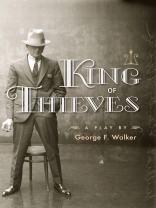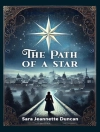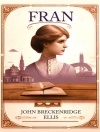New York City, 1928. Master-thief Mac must join an FBI sting operation against a cadre of corrupt bankers. Music, murder, and mayhem ensue – at the speakeasy where criminals scheme and on Wall Street where financiers conspire.
This trenchantly satirical play was first produced at the Stratford Festival in 2009, where director Jennifer Tarver described it as being loosely based on John Gay’s Beggar’s Opera (1728) which was later immortalized in the great Brecht-Weill composition The Threepenny Opera (1928). Readers familiar with these works will delight in Walker’s inspired pairing of Mac and Polly, Peachum and his missus, Jenny Diver, and a host of others within the corrupt world of Wall Street bankers immediately before the 1929 market crash. Readers meeting these characters for the first time will find much to enjoy in Walker’s ready wit and keen sense of story.
When the FBI blackmails Peachum into helping bring down a group of corrupt bankers, he partners with Mac, his son-in-law, to discover that the bankers are using their wealth to inflate the market, plotting to pull their assets just before the bubble bursts. They scheme to make new for- tunes by providing loans after everyone else goes bankrupt. If all of this sounds distressingly familiar, it should.
At its heart, King of Thieves, like both its predecessors, is an examination of criminal behaviour at all levels of society, and of the disturbing truth that everyone can fall prey to dishonesty and corruption. But the element of fun in Walker’s script makes us laugh and his sense of zaniness reflects the bafflement many of us feel when contemplating our own world: a place where men of dubious moral integrity still inhabit the corridors of power and are still not taken to task for their dishonourable – if not downright criminal – behaviour.
Cast of 11 men and 4 women.
Об авторе
George F. Walker has been one of Canada’s most prolific and popular playwrights since his career in theatre began in the early 1970s. His first play, The Prince of Naples, premiered in 1972 at the newly opened Factory Theatre, a company that continues to produce his work. Since that time, he has written more than twenty plays and has created screenplays for several award-winning Canadian television series. Part Kafka, part Lewis Carroll, Walker’s distinctive, gritty, fast-paced comedies satirize the selfishness, greed, and aggression of contemporary urban culture. Among his best-known plays are Gossip (1977); Zastrozzi, the Master of Discipline (1977); Criminals in Love (1984); Better Living (1986); Nothing Sacred (1988); Love and Anger (1989); Escape from Happiness (1991); Suburban Motel (1997, a series of six plays set in the same motel room); and Heaven (2000). Since the early 1980s, he has directed most of the premieres of his own plays. Many of Walker’s plays have been presented across Canada and in more than five hundred productions internationally; they have been translated into French, German, Hebrew, Turkish, Polish, and Czechoslovakian. During a ten-year absence from theatre, he mainly wrote for television, including the television series Due South, The Newsroom, This Is Wonderland, and The Line, as well as for the film Niagara Motel (based on three plays from his Suburban Motel series). Walker returned to the theatre with And So It Goes (2010). Awards and honours include Member of the Order of Canada (2005); National Theatre School Gascon-Thomas Award (2002); two Governor General’s Literary Awards for Drama (for Criminals in Love and Nothing Sacred); five Dora Mavor Moore Awards; and eight Chalmers Canadian Play Awards.












